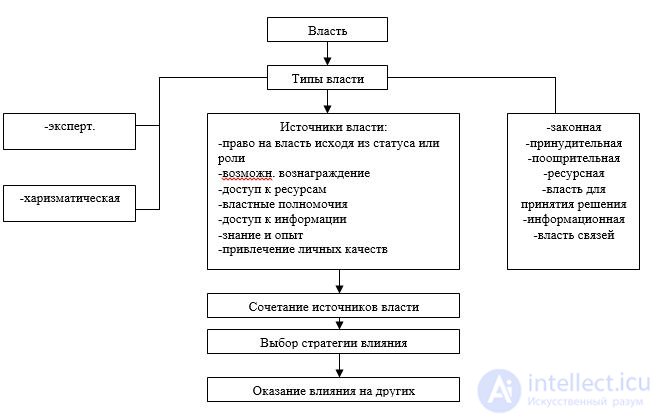Lecture
The concept of power. Power and authority.
The ability and ability to influence people's behavior is called power .
The definition of power as an organizational process - implies:
Powers - a form of power that a person possesses due to his position in the organization.
Power is not synonymous with authority.
Authority is power that has arisen on a formal basis, or is perceived to be repaired as something with which they agree and consider it correct.
There are rational-legal, charismatic and traditional authority.
Rational-legal - based on faith, the right of a superior in an organization to have power over subordinates
Charismatic - based on loyalty to a particular power carrier, based on his personal qualities.
Traditional - based on faith in the established traditional order.
Sources and types of power in organizations
The source of power is that which gives power, through which one or another type of power is appointed. The basis of power is what power depends on.

All types of authorities and their sources are not independent; they should be used by leaders in various combinations depending on the situation and the person being influenced.
Comments
To leave a comment
Organizational behavior
Terms: Organizational behavior